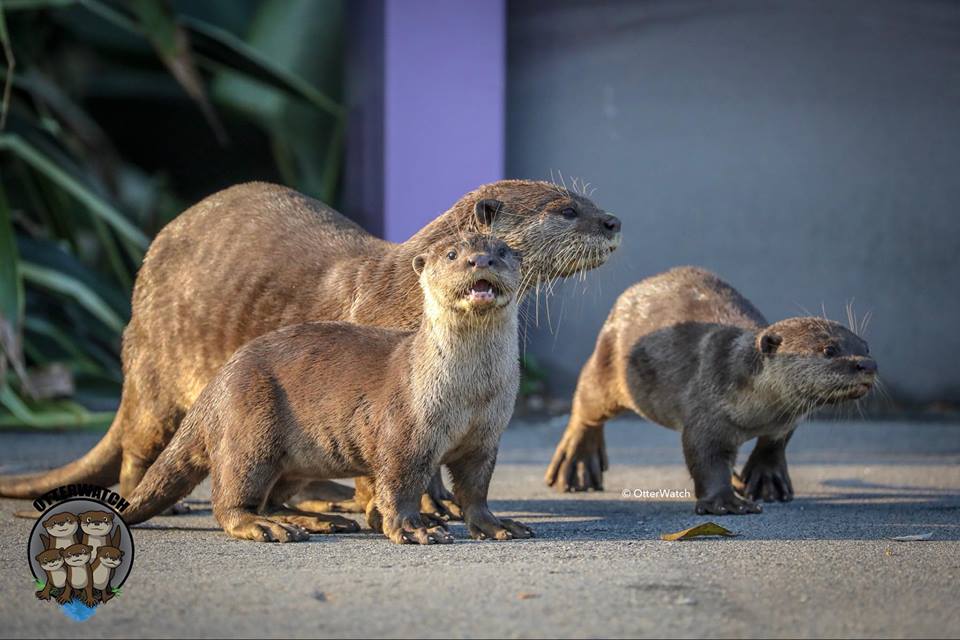SINGAPORE - An otter believed to be the father of the friendly Bishan otter family died on Saturday (May 5), surrounded by otter watchers, Animal Concerns Research and Education Society (Acres) officers and those who have followed his journey since 2014.
Veteran otter watcher and member of the Otter Working Group Jeffery Teo told The Straits Times that the smooth-coated otter had been observed to be sickly for about a week. His energy levels were low and blood was spotted in his stool.
The Otter Working Group is a volunteer group set up with several government agencies including the National Parks Board, the Agri-Food and Veterinary Authority and PUB in 2016.
On Saturday, more than 10 otter watchers gathered from 6am to track the otter.
They had been unsure that it was the Bishan dad, as they affectionately term the creature, but confirmed on Friday that it was him.
They did so by noting his unique markings, the relative position of the individual in the group, his size and behaviour, National University of Singapore (NUS) biology lecturer N. Sivasothi, who heads OtterWatch, told ST.
After being left behind by his family, the otter trailed sluggishly behind them before stopping under a wooden bridge along the Kallang River.
Although the Otter Working Group had planned to trap and treat the otter, they decided against it as they could see that his health was failing.
"We could see that his life was fading," said Mr Teo. "We stayed behind so that at least he's being accompanied in his last journey, and also to make sure his carcass wasn't eaten by other animals."
At around 2.40pm, the otter breathed his last. He had been around seven to eight years old, Mr Teo said.
"A lot of people cried," he said. Wildlife Reserves Singapore received the carcass and will perform a post-mortem on it. After that, the carcass may be preserved as a wet museum specimen at the Lee Kong Chian Natural History Museum.

Mr Sivasothi, who has studied the mammals since 1994, said otters in the wild can live for about eight years, while those in captivity can survive for up to 14 years.
He said the otter watching community was saddened by the death.
"He's been followed since 2014," said Mr Sivasothi. "This otter is quite unusual. He's very successful in how he led the family and that's why they managed to stay intact in such a large group. We know this from zoos - not every parent is good. An adult which is a very good parent is prized in a captive collection."
This brings the number of otters in the Bishan family to 14. The future of the family is uncertain, and both Mr Teo and Mr Sivasothi were unsure on whether the mother would take a new mate.
"It will be the first time we will be able to clearly observe how this turns out," said Mr Sivasothi.

He said the Bishan dad was "quite indifferent to otter watchers" and not shy, allowing them to view many aspects of his behaviour up close.
"I think this is the most intimate interaction between an otter brood and a whole community of otter watchers in the world," he said. "I think that's why they all feel the loss so strongly. But they understand - these are things that happen in a natural life cycle."
Acres deputy chief executive officer Kalai Vanan told ST that three Acres officers were present.
"It's very unfortunate and sad indeed that he died," he said. "For now, we would need to find out the probable cause of death so that we can be better prepared if there is a similar scenario in the future."

